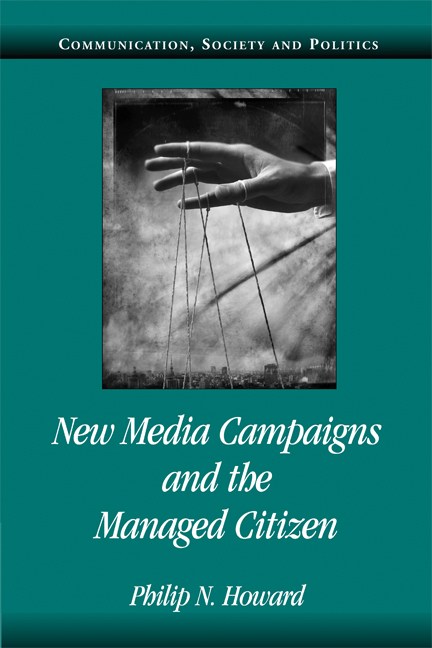
Professor Philip Howard
Professor of Internet Studies
Philip N. Howard is a professor of sociology, information, and international affairs. He is Director of the Programme on Democracy and Technology, and is a Professorial Fellow of Balliol College.

Philip N. Howard (2005) New Media Campaigns and the Managed Citizen. Yale University Press. ISBN: 0521612276.
The political campaign is one of the most important organizations in a democracy, and whether issue or candidate specific, it is one of the least understood organizations in contemporary political life. This book is a critical assessment of the role that information technologies have come to play in contemporary campaigns. With evidence from ethnographic immersion, survey data, and social network analysis, Howard examines the evolving act of political campaigning and the changing organization of political campaigns over the last five election cycles, from 1996 to 2004.
Over this time, both grassroots and elite political campaigns have gone online, built multimedia strategies, and constructed complex relational databases. The contemporary political campaign adopts digital technologies that improve reach and fundraising, and at the same time adapts their organizational behavior. The new system of producing political culture has immense implications for the meaning of citizenship and the basis of representation.
About the author
Philip N. Howard is a professor of sociology, information and international affairs. He teaches at Oxford University and is a Fellow at the Tow Center for Digital Journalism at Columbia University. He writes about information politics and international affairs, and he is the author of eight books, including The Managed Citizen, the Digital Origins of Dictatorship and Democracy, and now Pax Technica: How the Internet of Things May Set Us Free or Lock Us Up. He has won multiple “best book” awards, and his research and commentary writing has been featured in the New York Times, Washington Post, and many international media outlets. Howard holds a Ph.D. from Northwestern University, where he studied how U.S. politicians use the internet to market their brand and manipulate public opinion.
Awards